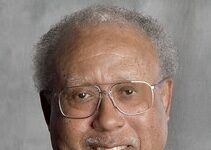 Indiana University Purdue University Indianapolis has launched a new initiative, called the White Racial Literacy Project. The effort aims to get White students more involved in conversations about racial equity. The project is one of 46 programs funded by IUPUI’s Welcoming Campus Initiative which strives to make the university a more welcoming campus for students, faculty, staff, and the community.
Indiana University Purdue University Indianapolis has launched a new initiative, called the White Racial Literacy Project. The effort aims to get White students more involved in conversations about racial equity. The project is one of 46 programs funded by IUPUI’s Welcoming Campus Initiative which strives to make the university a more welcoming campus for students, faculty, staff, and the community.
According to the description of the effort on the university’s website, “the White Racial Literacy Project provides an educational environment and reflective opportunity for White people within the IUPUI community to unpack misconceptions and misinformation about structural racism. Oftentimes, racist acts and thoughts are fueled by stereotypes, implicit bias, and lack of knowledge. This project will enhance participant’s racial literacy to realize that racial equity efforts should and must include White people.”
“If we are a campus that says it’s committed to racial diversity, it has to be about more than just people of color,” said Lori Patton Davis, director of the Center for Race, Urban and Intersectionality Studies at IUPUI. “The goal of this project is to bring conversations regarding racial equity to those who don’t usually have them.”
The project includes workshops with nationally respected scholars on race, racism, equity, and race relations with IUPUI administration, faculty, staff, and students. These workshops include facilitated dialogues, racial justice courses, and a social media campaign, #jagsexplorewhiteness. Additionally, the study will administer surveys designed to gather information on the project and evaluate its effectiveness in heightening awareness.
Dr. Patton Davis acknowledged that people generally tend to be more honest and open when discussing difficult topics when conversing with people who look like them and have had similar experiences to them. For this reason, she trained a specific group of White people from the campus community to lead the dialogue sessions.
“Racial injustice has a different connotation for White people than for people of color. They respond differently, listen differently, react differently. But that doesn’t mean they aren’t affected,” Dr. Patton Davis said.
Dr. Patton Davis holds a bachelor’s degree in speech communication from Southern Illinois University at Edwardsville, a master’s degree in college student personnel from Bowling Green State University in Ohio, and a Ph.D. in higher education from Indiana University.












Bravo! I’m involved in a similar initiative, I wonder to what degree knowledge of the structure/systemic racism that characterizes our history from its very beginning, and therefore underlies current circumstances will be a part of the plans. We find learning this history helps our white fellow citizens to free themselves of guilt. Then our responsibility is to continues to learn of the history and to work with people of color to rectify its consequences